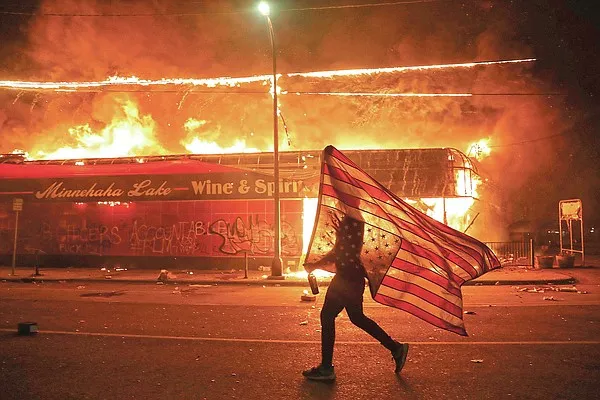Table of Contents
Between the night of November 9th and the morning of November 10th, a Jewish student’s residence in University safe housing was vandalized with graffiti reading “FREE PALESTINE.” The student, kept anonymous for fear of retribution, spoke with the Review. The student was moved to the University’s designated safe housing after they reported feeling unsafe in their dorm. Their new housing location was kept hidden, and the student did not share the location of their new residence.
After the vandalism, the student reported the incident to the police and Stanford’s administration, but the incident was not publicized to the wider Stanford community. The Jeanne Clery Act “requires institutions to issue Timely Warnings to the campus community about specified crimes (the Clery-reportable crimes) that occur on Clery geography, when these crimes are considered to pose a serious or ongoing threat to students and employees,” yet no campus-wide notification was issued.
The Stanford Daily reported the incident in its weekly Police Blotter post. However, there was no mention or description of the vandalism in the Daily, and no campuswide alert was sent out.
Stanford has previously alerted the community about alleged hate crimes through the AlertSU system, including through the university’s new Protected Identity Harm Reporting process. As of this article’s publication, no post has been made on the Protected Identity Harm Reporting database regarding the incident.
The vandalism is unlikely to have been random. There are hundreds of buildings on Stanford’s campus and dozens of student dormitories, and this student safe housing, in particular, was unadvertised. Any inquiry as to why this building was vandalized would likely lead to the near-certain conclusion that the act was targeted against its Jewish resident.
Though it is not antisemitic to simply state “Free Palestine,” the targeting of a Jewish student’s residence through vandalism with the phrase is clearly an antisemitic act that should not be tolerated on campus. It is free speech to shout “Free Palestine” at a protest; it is not free speech to vandalize a Jewish student’s dormitory with the phrase.
Stanford’s Protected Identity Harm Reporting system has made mountains out of molehills many times before: Tipsy students jokingly posing with Mein Kampf and dilapidated tire swings construed as nooses, to name just a few examples, have warranted either identity-specific or campuswide emails and notifications. It is disheartening to see that Stanford fails to respond when met with real identity-based hate.
This latest incident is yet another example of the double standard unveiled since October 7th—that is, the promotion of crony safetyism except for when Jewish students are in harm's way. Although universities have said that language can be violent, ballooned their DEI bureaucracies, and pushed for the silencing of professors who violate the social justice social contract, they turn silent when Jewish students are actually discriminated against.
Take the case of Ameer Loggins, a lecturer in the first-year COLLEGE program who was suspended after he separated Jewish and Israeli students and referred to them as “colonizers.” Though he was suspended, a large swath of students has rallied around him, arguing that because Jewish students felt Loggins should be suspended, he was smeared as an antisemite. A petition demanding his reinstatement has garnered 1,700 signatures. Or take the case of just last week, when protestors outside of a forum addressing campus antisemitism told Jewish students to “go back to Brooklyn,” and chanted “resistance is justified”—implicitly justifying the brutal pogrom of October 7th that killed 1,200 Israelis.
Though Stanford should not use the very real issue of antisemitism to justify safetyism, the University's treatment of this vandalism incident exposes the mental gymnastics of Stanford’s DEI bureaucracy. It consistently cries out for safe spaces and speech restrictions, yet it sweeps real instances of hate under the rug.





